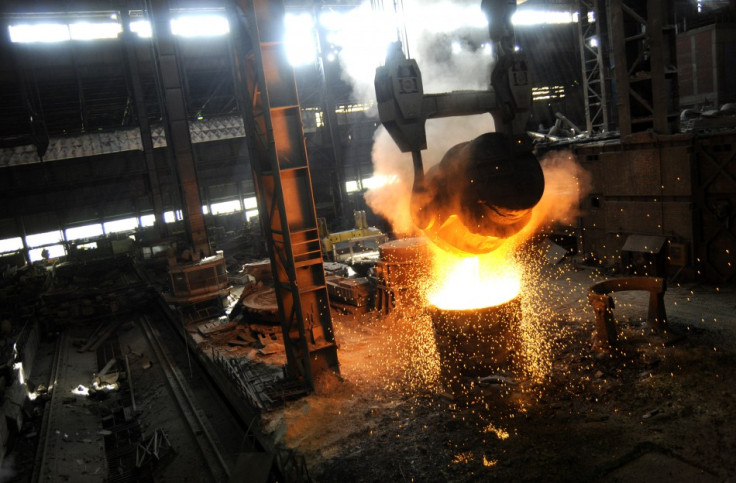Arcelor Mittal's Plan to Axe 1,300 Belgian Jobs Triggers Strike Call by Unions

Arcelor Mittal's decision to shut down facilities in the Belgian city of Liege has triggered widespread protests from the employees as it would result in nearly 1,300 job losses.
The protest followed the announcement from the world's biggest steel maker that it was planning to permanently shut the coke mill and six finishing lines in the Liege region due to declining steel demand from the Europe.
Arcelor Mittal said in a statement that it "recognises that this proposal will be very difficult for the local community as it affects approximately 1,300 people. It is committed to finding a socially acceptable solution for all those affected".
"We deeply regret that the economic situation has further deteriorated to the extent that the proposal of further closures at Liege has become necessary".
Meanwhile, unions called for an immediate general strike and the employees burned tyres and wooden palettes outside the headquarters of one of the plants, according to an AFP report.
"I support the workers. It is my first message this afternoon during my meeting with ArcelorMittal chief executive Lakshmi Mittal," tweeted Belgian Prime Minister Elio Di Rupo from the World Economic Forum in Davos.
"I will also convey the incomprehension of the Belgian authorities," he added.
Arcelor Mittal and other steel makers in the world are suffering from the weakness in steel and iron-ore demand and prices in the Europe and elsewhere. The company is already embroiled in a controversy over the closure of two blast furnaces in France.
Arcelor Mittal's second quarter net income fell to $959m (£619m) or $0.56 per share as against the previous year's $1.54 bn or $0.93 per share for the same quarter. The company said its Belgian facility alone contributed to the loss of €200m ($265.62m) in the first nine months of 2012.
According to an estimate by the World Steel Association, global steel demand is expected to see a slow growth of 3.6 percent in 2012, from 5.6 percent in 2011.
© Copyright IBTimes 2025. All rights reserved.





















